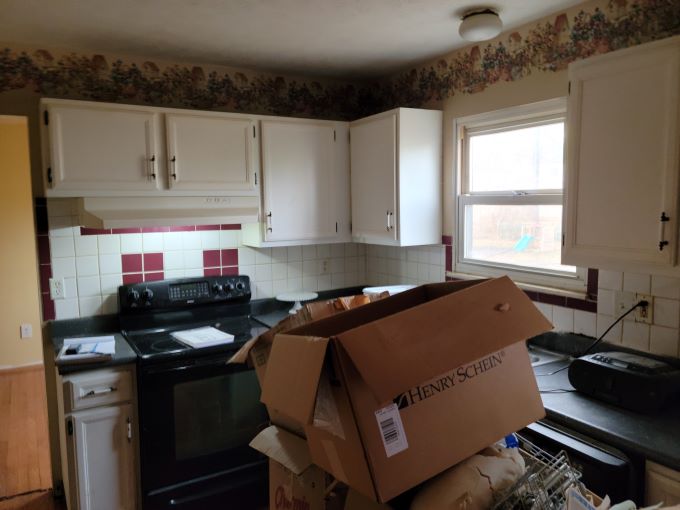Closing the sale of an inherited property involves multiple steps, with closing being the final and most crucial phase. This guide provides a comprehensive overview and a step-by-step checklist to help you navigate the closing process, including finalizing contracts, transferring ownership, and ensuring all legal requirements are met.
Introduction
Closing the sale of an inherited property can be a complex process. It’s essential to follow the correct procedures to ensure a smooth transaction and legal compliance. This guide will help you understand the steps involved and provide a detailed checklist to make sure you don’t miss any critical tasks.
Step-by-Step Checklist for Closing the Sale of an Inherited Property
Step 1: Review and Finalize the Sales Contract
Task: Ensure that all terms and conditions of the sale are clearly stated and agreed upon by both parties.
- Review: Carefully read through the sales contract.
- Confirm: Verify that all agreed-upon terms, including price, contingencies, and closing date, are correct.
- Consult: Seek advice from a real estate attorney if necessary.
- Sign: Both parties should sign the finalized contract.
Step 2: Hire a Title Company or Real Estate Attorney
Task: Engage a professional to handle the closing process and ensure legal compliance.
- Choose: Select a reputable title company or real estate attorney.
- Contract: Sign an agreement for their services.
- Communicate: Provide them with all necessary documents and information about the property and sale.
Step 3: Conduct a Title Search
Task: Ensure the property has a clear title and there are no liens or encumbrances.
- Request: The title company or attorney will conduct a title search.
- Review: Examine the title report for any issues.
- Resolve: Address any title problems or liens before closing.
Step 4: Secure Title Insurance
Task: Protect both buyer and seller from any future title disputes.
- Purchase: Obtain title insurance through the title company.
- Confirm: Ensure the policy covers the property’s full value.
Step 5: Prepare Closing Documents
Task: Gather all necessary documentation required for the closing.
- Compile: Collect documents such as the deed, affidavit of title, bill of sale, and closing disclosure.
- Review: Double-check all documents for accuracy.
- Sign: Have all parties sign where necessary.
Step 6: Schedule a Final Walkthrough
Task: Allow the buyer to inspect the property one last time before closing.
- Arrange: Schedule the walkthrough a day or two before closing.
- Inspect: Ensure the property is in the agreed-upon condition.
- Address: Resolve any last-minute issues or discrepancies.
Step 7: Coordinate with Lenders
Task: Ensure the buyer’s financing is in place and ready for disbursement.
- Confirm: Verify with the buyer’s lender that all financing is approved and ready.
- Prepare: Ensure all loan documents are ready for signing at closing.
Step 8: Calculate Closing Costs
Task: Determine the total amount of closing costs and how they will be divided.
- Estimate: Obtain a closing cost estimate from the title company or attorney.
- Divide: Allocate costs between the buyer and seller as per the sales contract.
- Prepare Funds: Ensure funds are available to cover your share of the costs.
Step 9: Attend the Closing Meeting
Task: Finalize the sale by signing documents and transferring ownership.
- Meet: Schedule the closing meeting with all parties involved.
- Sign: Execute all necessary documents, including the deed, bill of sale, and closing statement.
- Pay: Disburse funds for closing costs and any remaining mortgage balance.
Step 10: Transfer Ownership
Task: Officially transfer the property title to the buyer.
- Record: The title company or attorney will record the new deed with the county recorder’s office.
- Provide: Give the buyer all keys, codes, and necessary property documents.
Step 11: Distribute Sale Proceeds
Task: Allocate the sale proceeds according to the terms of the sale.
- Receive: Collect your share of the sale proceeds.
- Distribute: Ensure all parties, such as heirs or co-owners, receive their respective shares.
Step 12: Notify Relevant Parties
Task: Inform necessary parties about the sale and change of ownership.
- Notify: Contact utility companies, insurance providers, and tax authorities.
- Update: Ensure all records are updated with the new ownership information.
Step 13: Finalize Taxes and Legal Obligations
Task: Complete any remaining tax and legal responsibilities.
- File: Submit any required tax forms related to the sale.
- Pay: Ensure all property taxes and capital gains taxes are paid.
- Retain: Keep copies of all closing documents for future reference.
Conclusion
Closing the sale of an inherited property involves numerous steps and careful attention to detail. By following this comprehensive guide and checklist, you can ensure that you cover all necessary tasks, comply with legal requirements, and complete the sale smoothly. Proper planning and professional assistance are key to a successful transaction.


 Facebook
Facebook
 X
X
 Pinterest
Pinterest
 Copy Link
Copy Link

